4 Feb 2015 | mobile, News, United Kingdom, United States, Volume 43.04 Winter 2014
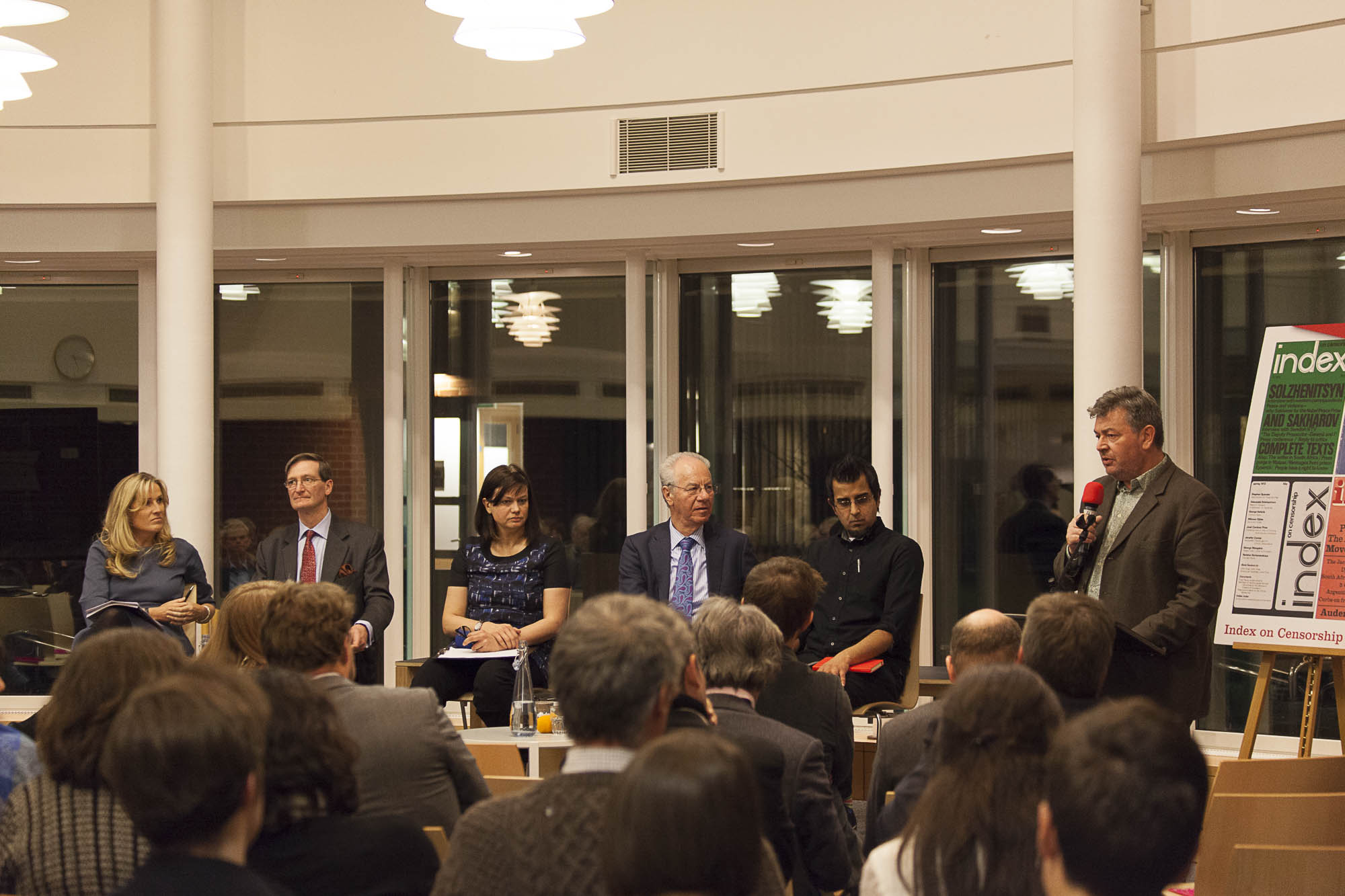
On the day when the four surviving copies of the original 1215 Magna Carta were briefly brought together for the first time, Index on Censorship held a debate to celebrate the launch of the winter issue of the magazine.
With a panel hailing from both sides of the Atlantic, speakers included MP and former Attorney General Dominic Grieve, University of East Anglia Professor Sarah Churchwell, Artistic Director Madani Younis of the Bush Theatre and author and President of YouGov Peter Kellner.
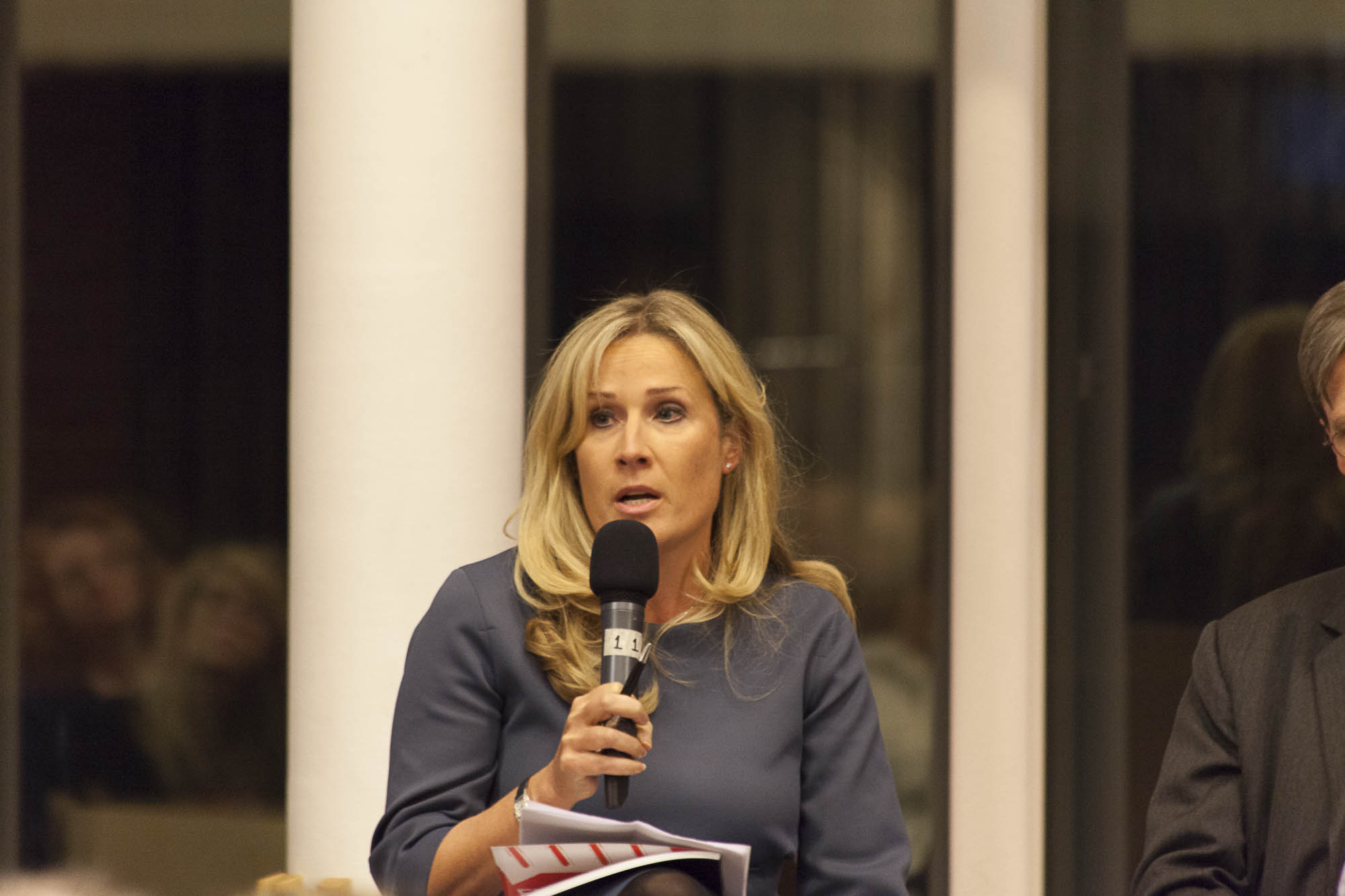
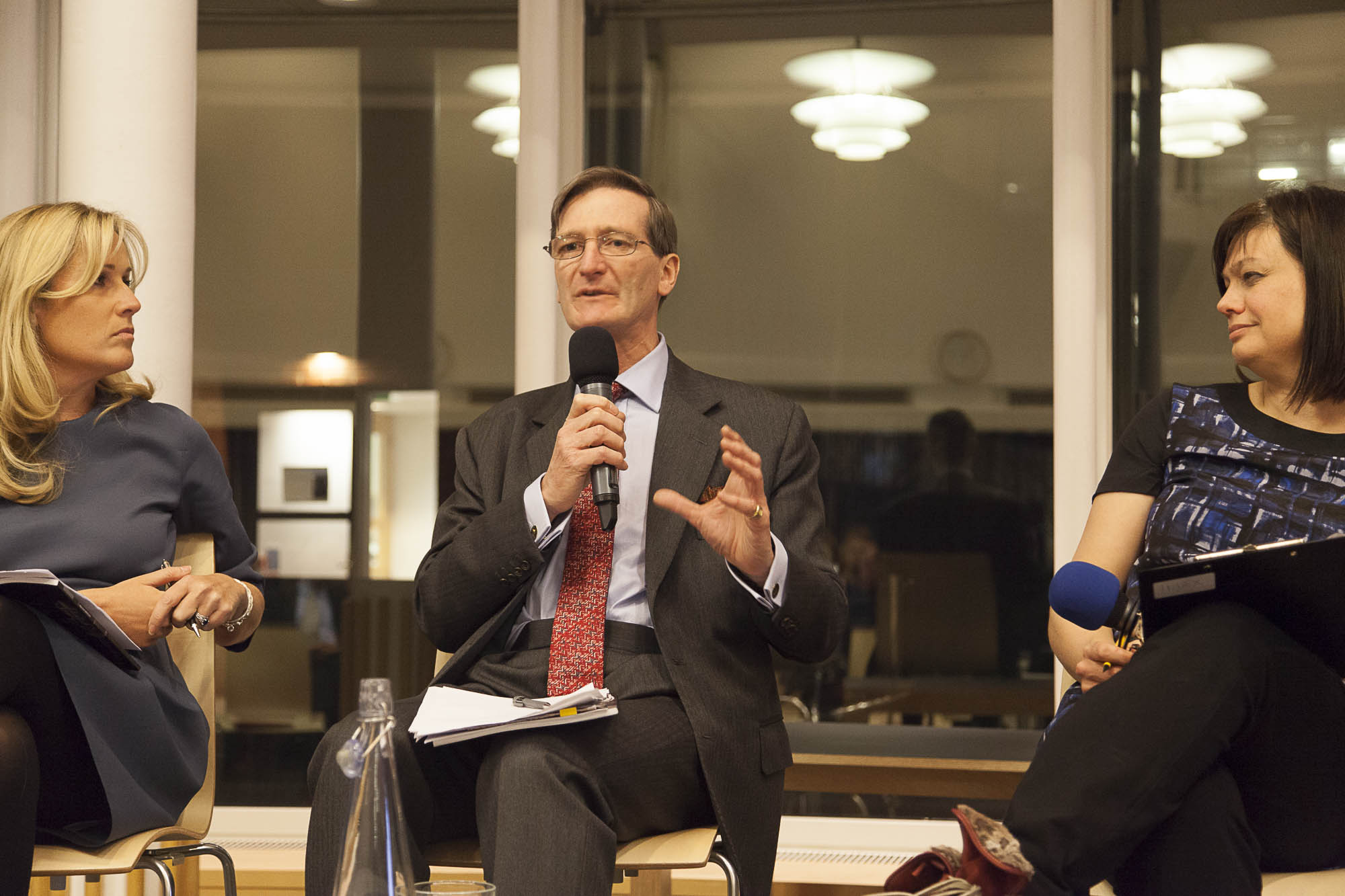
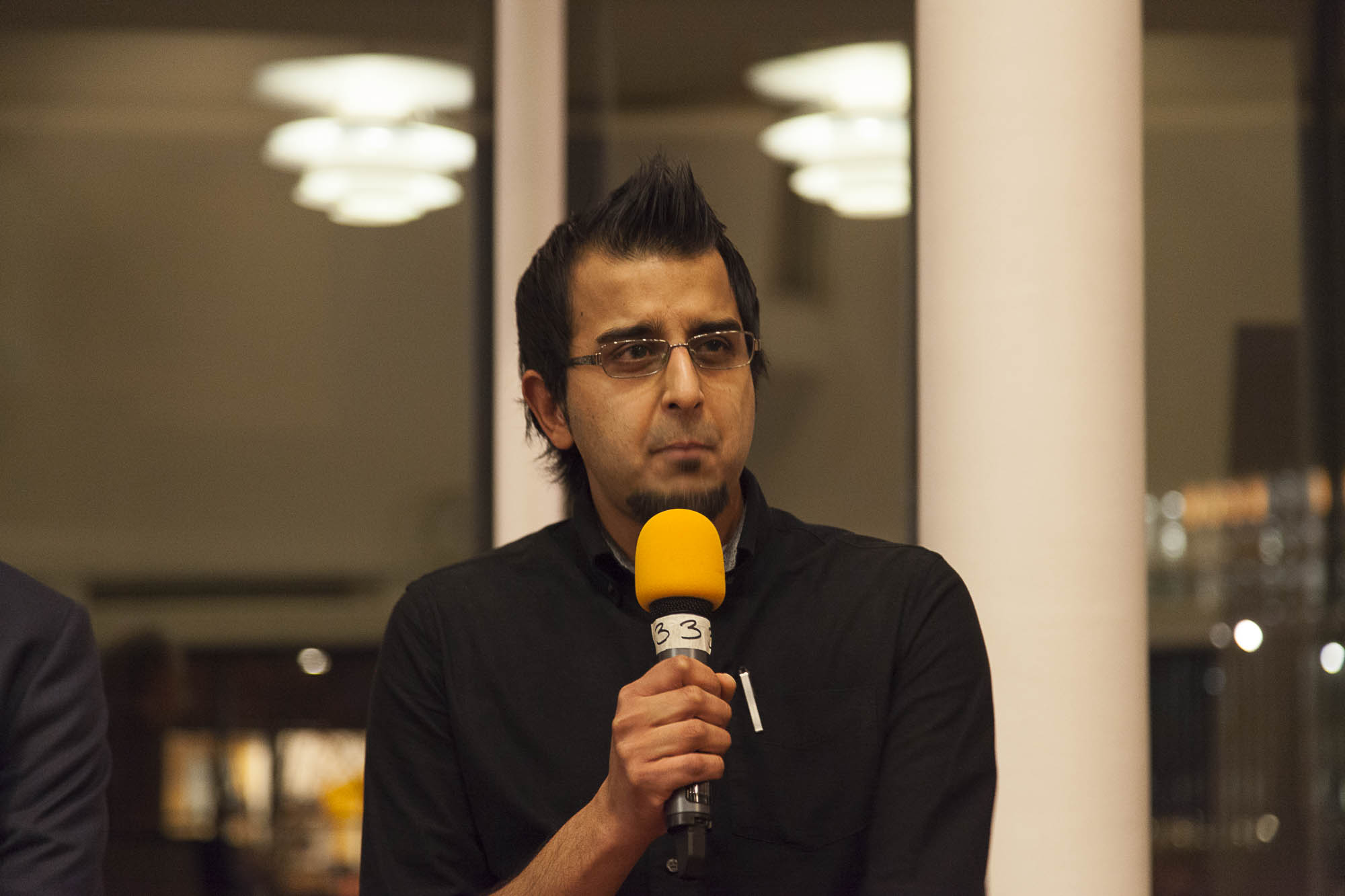
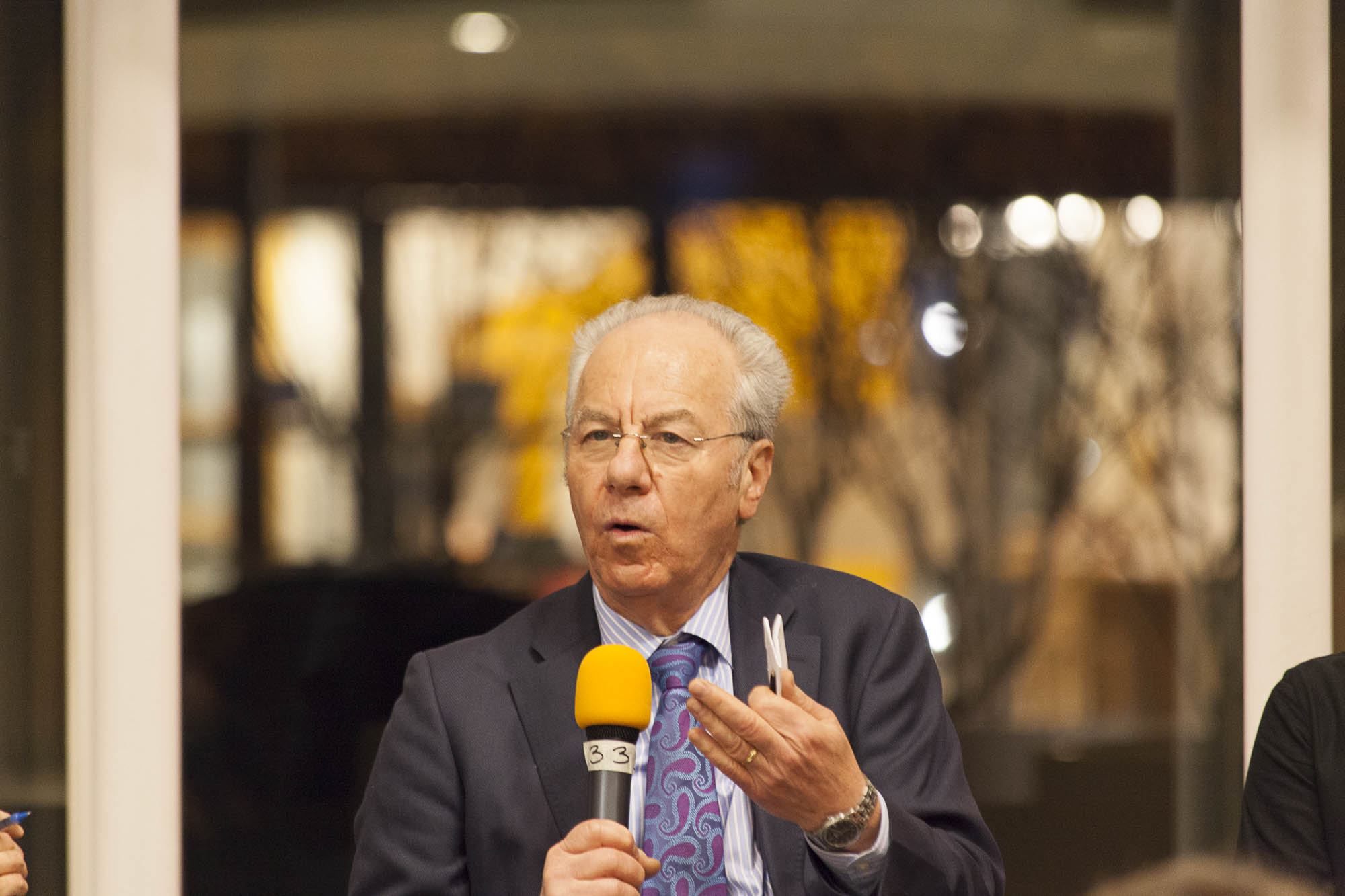
2 Dec 2011 | Uncategorized
Attorney General Dominic Grieve has cautioned against journalists assuming that they are free to report what is said in parliament without fear of bring prosecuted.
Speaking at City University, London, Grieve said “it is still an open question as to whether something said in parliament in breach of a court order may be repeated in the press.”
He explained that journalists are protected by qualified privilege in producing a “a fair and accurate report of proceedings”, but warned that “just because something has been said does not mean it can be repeated out of context”.
He said that the privilege to report parliamentary proceedings does not necessarily extend to all publications that are not published by order of parliament, and that this has “yet to be authoritatively decided but will shortly be considered further by parliament.”
He referred to the case earlier this year in which MPs took advantage of parliamentary privilege to reveal the identities of public figures that were protected by injunctions. Grieve argued that it “ill serves the parliamentary process if court orders are openly flouted for no good reason”.
He also criticised the British press for what he saw as irresponsible reporting. Citing the tabloids’ coverage of Chris Jefferies, who was wrongly arrested by police investigating the murder of Bristol woman Joanna Yeates, Grieve said the British press had increasingly tested the boundaries of what was acceptable in reporting criminal cases. “At times it appeared to me the press had lost any sense of internal constraint and felt able, indeed entitled, to print what they wished, shielded by the right of ‘freedom of expression’ without any of the concomitant responsibilities,” he said.
He went on to suggest the need for a “moral imperative…to observe common decency when reporting on such cases.”
He added that the Criminal Justice Act 2003, which allowed a defendant’s previous convictions to be given in evidence at a trial, may have exacerbated matters. It is essential, he argued, “that jurors are not contaminated by material which has not been presented to them as evidence — it is only upon the evidence that their verdict must be based.”
He reiterated maintaining the “sanctity” of the jury room, expressing concern that “uncontrolled, such reporting could eventually undermine the jury system”.
He highlighted the “challenge” of the internet, whose inhabitants often feel “unconstrained by the laws of the land.” The belief that, so long as something is published in cyberspace there is no need to respect libel or contempt laws was, he said, “mistaken”.
Grieve reiterated he was a staunch defender of the freedom of the press, and wanted to build a consensus with bodies such as the Press Complaints Commission. He said meetings with the PCC and other media organisations suggested the press would welcome more advisory notices — as issued in the case of Jefferies — which highlight potential problems with coverage.
Grieve said that, although it has been practice to issue advisory notices in only the most extreme of cases, that did not mean that the absence of a notice in a case meant it is “open season”.
Under the Contempt of Court Act 1981, Grieve has this year successfully prosecuted the Sun and the Mirror for its treatment of Jefferies. The papers were fined £18,000 and £50,000 respectively. Grieve is also currently pursuing contempt actions against Sky News and the Spectator.
Marta Cooper is an editorial assistant at Index on Censorship
4 Oct 2010 | Uncategorized
It was good to see Dominic Grieve, the attorney general, championing free speech on the first day of the Conservative party conference yesterday in Birmingham.
First, he spoke alongside Kenneth Clarke, secretary of state for justice, at a Liberty fringe event and when asked how he’d deal with rabble-rousing jihadists, he answered that he wasn’t a fan of hate speech laws. He’d much rather see hatemongers publicly dismissed or challenged rather than pursued through the courts.
He added that he felt that free speech had been eroded and it looks very likely that some of the Labour government’s misguided terrorism legislation (including glorification) will be repealed. The attorney general made another appearance later on in the day at the libel reform campaign fringe event with Index on Censorship, Sense about Science and English PEN in the Castle Fine Art gallery, flanked on each side by Bob Dylan’s perplexing pseudo Van Gogh paintings. Although he managed to upset Simon Singh by referring to the blogosphere as “froth”, his support for the campaign, along with that of John Whittingdale MP, chair of the Culture, Media and Sport select committee, went down well with campaigners last night.
22 Apr 2010 | News, United Kingdom
 The ballots are in, they’ve been badly counted and the winner of last night’s completely unscientific poll is Dr Evan Harris, the Liberal Democrats science spokesman*
The ballots are in, they’ve been badly counted and the winner of last night’s completely unscientific poll is Dr Evan Harris, the Liberal Democrats science spokesman*
1. Who do you think defended freedom of speech the best?
Michael Wills — Labour 2
Evan Harris — Liberal Democrat 55
Dominic Grieve — Conservative 12
2. Whose proposed reforms of our libel laws were you most favourable to?
Michael Wills —- Labour 2
Evan Harris — Liberal Democrat 58
Dominic Grieve — Conservative 9
3. Whose arguments did you find the most convincing?
Michael Wills —- Labour 3
Evan Harris — Liberal Democrat 52
Dominic Grieve — Conservative 15
***This is in no way an endorsement of any political party by Index on Censorship






